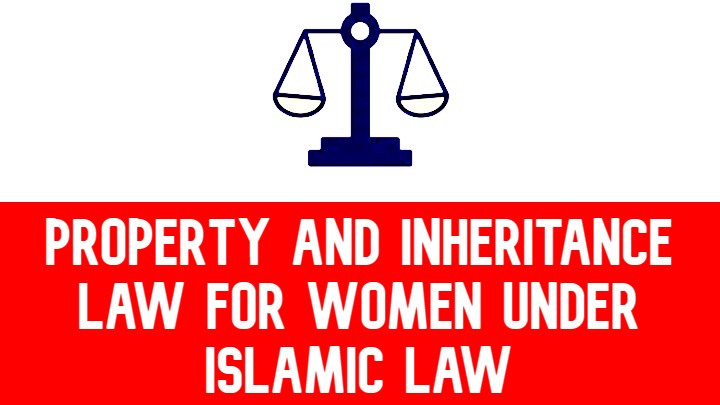Property and Inheritance law for Women under Islamic Law! - healthforty
For Women under Islamic Law:
This law follows the rules of Sharia and has different characteristics from other religions.
Property rights of the daughter:
According to
the belief, a woman is worth half that of a man. Inheritance laws for women here give daughters half of what sons receive. But a woman has full control over her property and can dispose of or manage/sell/gift it as she wishes. Daughters have the right to reside in the parents' property until marriage and widowhood/divorce if she has no children or they are minors. Once the children are old enough to care for her mother, she takes responsibility for the child.
Wife's Property Rights:
According to Sharia property laws for women, a married woman enjoys full ownership of her own property and other things. She is entitled to maintenance from her husband, the reasonable provisions necessary after the divorce and the amount of 'Mehr' fixed at the time of the marriage. If the husband dies and she is the only woman, she will inherit a quarter of her property if there are no children; and the eighth part, if there are children of the marriage. If the deceased husband has more than one wife, each wife's estate is further reduced, say one-sixteenth. In the absence of other partners, the husband's will may increase the wife's inheritance to some extent.
Mother's property right:
A widowed or divorced mother is entitled to child support for her children and inherits one-sixth of her deceased child's assets. The property of her is divided according to the guidelines of Muslim law.
Under the Muslim Inheritance Law for women, the divorcee receives the 'mehr' from her and ceases to belong to her husband and her family. She is not a recipient of assets from a deceased ex-husband. The same is true of a remarried widow who cannot claim any property rights from her deceased husband. A second wife is a legal wife under Muslim law and has the same rights as a first or third wife.
Final Word on Women's Property Law:
Now we try to answer the main problem of Anita's maintenance and inheritance. Anita has no right to her in-laws' property and if they refuse to give her a roof, Anita has to accept the decision. But Anita has the right to inherit from her father's property. Since her father died without a will, the property must be divided equally between Anita, her brother, and her mother. In this way, Anita can obtain part of her father's wealth and perhaps take refuge in her father's house. In addition, she can examine her late husband's financial, insurance, and official claims to see if he named her as a nominee. This will be a blessing at a time when she needs financial support.
For Women in Christian Law:
Let's look at inheritance laws for women in various relational categories with reference to Christian law that also applies to Jews and Parsees.
Daughter's property rights:
A daughter will inherit the property of both parents in equal shares with her siblings. She enjoys the protection and maintenance of her parents until marriage. After that, she is on support from her husband. Her father remains her natural guardian until she is a minor. After becoming a legal adult, she has full rights to her personal property.
Wife's Property Rights:
A woman as a wife is entitled to support from her husband. If she doesn't pay it, she can file for divorce on this ground. According to Christian inheritance laws for women, a widow is entitled to one-third of her husband's estate and the remainder is divided equally among the deceased's children. If there are no children, she will keep half of the property. The minimum amount that a wife can inherit from her deceased husband is set at INR 5000.
Mother's property right:
The property law for Christian women does not consider the mother as a dependent of the child. A woman as a mother has no right to food. But if the deceased son is single and has no children, the mother is entitled to a quarter of her assets.
Inheritance law for women if they are divorced, remarried widows and second wives will be the same as Hindu law.



Leave a comment here